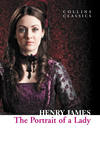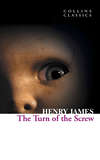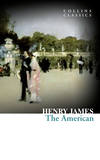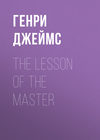Loe raamatut: «The Wings of the Dove, Volume II», lehekülg 6
She gave no look to thank him—she rather looked away; she only said at once to her servant, "In ten minutes"; and then to her visitor, as the man went out, "We'll go somewhere—I shall like that. But I must ask of you time—as little as possible—to get ready." She looked over the room to provide for him, keep him there. "There are books and things—plenty; and I dress very quickly." He caught her eyes only as she went, on which he thought them pretty and touching.
Why especially touching at that instant he could certainly scarce have said; it was involved, it was lost in the sense of her wishing to oblige him. Clearly what had occurred was her having wished it so that she had made him simply wish, in civil acknowledgement, to oblige her; which he had now fully done by turning his corner. He was quite round it, his corner, by the time the door had closed upon her and he stood there alone. Alone he remained for three minutes more—remained with several very living little matters to think about. One of these was the phenomenon—typical, highly American, he would have said—of Milly's extreme spontaneity. It was perhaps rather as if he had sought refuge—refuge from another question—in the almost exclusive contemplation of this. Yet this, in its way, led him nowhere; not even to a sound generalisation about American girls. It was spontaneous for his young friend to have asked him to drive with her alone—since she hadn't mentioned her companion; but she struck him after all as no more advanced in doing it than Kate, for instance, who wasn't an American girl, might have struck him in not doing it. Besides, Kate would have done it, though Kate wasn't at all, in the same sense as Milly, spontaneous. And then in addition Kate had done it—or things very like it. Furthermore he was engaged to Kate—even if his ostensibly not being put her public freedom on other grounds. On all grounds, at any rate, the relation between Kate and freedom, between freedom and Kate, was a different one from any he could associate or cultivate, as to anything, with the girl who had just left him to prepare to give herself up to him. It had never struck him before, and he moved about the room while he thought of it, touching none of the books placed at his disposal. Milly was forward, as might be said, but not advanced; whereas Kate was backward—backward still, comparatively, as an English girl—and yet advanced in a high degree. However—though this didn't straighten it out—Kate was of course two or three years older; which at their time of life considerably counted.
Thus ingeniously discriminating, Densher continued slowly to wander; yet without keeping at bay for long the sense of having rounded his corner. He had so rounded it that he felt himself lose even the option of taking advantage of Milly's absence to retrace his steps. If he might have turned tail, vulgarly speaking, five minutes before, he couldn't turn tail now; he must simply wait there with his consciousness charged to the brim. Quickly enough moreover that issue was closed from without; in the course of three minutes more Miss Theale's servant had returned. He preceded a visitor whom he had met, obviously, at the foot of the stairs and whom, throwing open the door, he loudly announced as Miss Croy. Kate, on following him in, stopped short at sight of Densher—only, after an instant, as the young man saw with free amusement, not from surprise and still less from discomfiture. Densher immediately gave his explanation—Miss Theale had gone to prepare to drive—on receipt of which the servant effaced himself.
"And you're going with her?" Kate asked.
"Yes—with your approval; which I've taken, as you see, for granted."
"Oh," she laughed, "my approval's complete!" She was thoroughly consistent and handsome about it.
"What I mean is of course," he went on—for he was sensibly affected by her gaiety—"at your so lively instigation."
She had looked about the room—she might have been vaguely looking for signs of the duration, of the character of his visit, a momentary aid in taking a decision. "Well, instigation then, as much as you like." She treated it as pleasant, the success of her plea with him; she made a fresh joke of this direct impression of it. "So much so as that? Do you know I think I won't wait?"
"Not to see her—after coming?"
"Well, with you in the field—! I came for news of her, but she must be all right. If she is—"
But he took her straight up. "Ah how do I know?" He was moved to say more. "It's not I who am responsible for her, my dear. It seems to me it's you." She struck him as making light of a matter that had been costing him sundry qualms; so that they couldn't both be quite just. Either she was too easy or he had been too anxious. He didn't want at all events to feel a fool for that. "I'm doing nothing—and shall not, I assure you, do anything but what I'm told."
Their eyes met with some intensity over the emphasis he had given his words; and he had taken it from her the next moment that he really needn't get into a state. What in the world was the matter? She asked it, with interest, for all answer. "Isn't she better—if she's able to see you?"
"She assures me she's in perfect health."
Kate's interest grew. "I knew she would." On which she added: "It won't have been really for illness that she stayed away last night."
"For what then?"
"Well—for nervousness."
"Nervousness about what?"
"Oh you know!" She spoke with a hint of impatience, smiling however the next moment. "I've told you that."
He looked at her to recover in her face what she had told him; then it was as if what he saw there prompted him to say: "What have you told her?"
She gave him her controlled smile, and it was all as if they remembered where they were, liable to surprise, talking with softened voices, even stretching their opportunity, by such talk, beyond a quite right feeling. Milly's room would be close at hand, and yet they were saying things—! For a moment, none the less, they kept it up. "Ask her, if you like; you're free—she'll tell you. Act as you think best; don't trouble about what you think I may or mayn't have told. I'm all right with her," said Kate. "So there you are."
"If you mean here I am," he answered, "it's unmistakeable. If you also mean that her believing in you is all I have to do with you're so far right as that she certainly does believe in you."
"Well then take example by her."
"She's really doing it for you," Densher continued. "She's driving me out for you."
"In that case," said Kate with her soft tranquillity, "you can do it a little for her. I'm not afraid," she smiled.
He stood before her a moment, taking in again the face she put on it and affected again, as he had already so often been, by more things in this face and in her whole person and presence than he was, to his relief, obliged to find words for. It wasn't, under such impressions, a question of words. "I do nothing for any one in the world but you. But for you I'll do anything."
"Good, good," said Kate. "That's how I like you."
He waited again an instant. "Then you swear to it?"
"To 'it'? To what?"
"Why that you do 'like' me. Since it's all for that, you know, that I'm letting you do—well, God knows what with me."
She gave at this, with a stare, a disheartened gesture—the sense of which she immediately further expressed. "If you don't believe in me then, after all, hadn't you better break off before you've gone further?"
"Break off with you?"
"Break off with Milly. You might go now," she said, "and I'll stay and explain to her why it is."
He wondered—as if it struck him. "What would you say?"
"Why that you find you can't stand her, and that there's nothing for me but to bear with you as I best may."
He considered of this. "How much do you abuse me to her?"
"Exactly enough. As much as you see by her attitude."
Again he thought. "It doesn't seem to me I ought to mind her attitude."
"Well then, just as you like. I'll stay and do my best for you."
He saw she was sincere, was really giving him a chance; and that of itself made things clearer. The feeling of how far he had gone came back to him not in repentance, but in this very vision of an escape; and it Was not of what he had done, but of what Kate offered, that he now weighed the consequence. "Won't it make her—her not finding me here—be rather more sure there's something between us?"
Kate thought. "Oh I don't know. It will of course greatly upset her. But you needn't trouble about that. She won't die of it."
"Do you mean she will?" Densher presently asked.
"Don't put me questions when you don't believe what I say. You make too many conditions."
She spoke now with a shade of rational weariness that made the want of pliancy, the failure to oblige her, look poor and ugly; so that what it suddenly came back to for him was his deficiency in the things a man of any taste, so engaged, so enlisted, would have liked to make sure of being able to show—imagination, tact, positively even humour. The circumstance is doubtless odd, but the truth is none the less that the speculation uppermost with him at this juncture was: "What if I should begin to bore this creature?" And that, within a few seconds, had translated itself. "If you'll swear again you love me—!"
She looked about, at door and window, as if he were asking for more than he said. "Here? There's nothing between us here," Kate smiled.
"Oh isn't there?" Her smile itself, with this, had so settled something for him that he had come to her pleadingly and holding out his hands, which she immediately seized with her own as if both to check him and to keep him. It was by keeping him thus for a minute that she did check him; she held him long enough, while, with their eyes deeply meeting, they waited in silence for him to recover himself and renew his discretion. He coloured as with a return of the sense of where they were, and that gave her precisely one of her usual victories, which immediately took further form. By the time he had dropped her hands he had again taken hold, as it were, of Milly's. It was not at any rate with Milly he had broken. "I'll do all you wish," he declared as if to acknowledge the acceptance of his condition that he had practically, after all, drawn from her—a declaration on which she then, recurring to her first idea, promptly acted.
"If you are as good as that I go. You'll tell her that, finding you with her, I wouldn't wait. Say that, you know, from yourself. She'll understand."
She had reached the door with it—she was full of decision; but he had before she left him one more doubt. "I don't see how she can understand enough, you know, without understanding too much."
"You don't need to see."
He required then a last injunction. "I must simply go it blind?"
"You must simply be kind to her."
"And leave the rest to you?"
"Leave the rest to her," said Kate disappearing.
It came back then afresh to that, as it had come before. Milly, three minutes after Kate had gone, returned in her array—her big black hat, so little superstitiously in the fashion, her fine black garments throughout, the swathing of her throat, which Densher vaguely took for an infinite number of yards of priceless lace, and which, its folded fabric kept in place by heavy rows of pearls, hung down to her feet like the stole of a priestess. He spoke to her at once of their friend's visit and flight. "She hadn't known she'd find me," he said—and said at present without difficulty. He had so rounded his corner that it wasn't a question of a word more or less.
She took this account of the matter as quite sufficient; she glossed over whatever might be awkward. "I'm sorry—but I of course often see her." He felt the discrimination in his favour and how it justified Kate. This was Milly's tone when the matter was left to her. Well, it should now be wholly left.
BOOK SEVENTH
I
When Kate and Densher abandoned her to Mrs. Stringham on the day of her meeting them together and bringing them to luncheon, Milly, face to face with that companion, had had one of those moments in which the warned, the anxious fighter of the battle of life, as if once again feeling for the sword at his side, carries his hand straight to the quarter of his courage. She laid hers firmly on her heart, and the two women stood there showing each other a strange front. Susan Shepherd had received their great doctor's visit, which had been clearly no small affair for her; but Milly had since then, with insistence, kept in place, against communication and betrayal, as she now practically confessed, the barrier of their invited guests. "You've been too dear. With what I see you're full of you treated them beautifully. Isn't Kate charming when she wants to be?"
Poor Susie's expression, contending at first, as in a high fine spasm, with different dangers, had now quite let itself go. She had to make an effort to reach a point in space already so remote. "Miss Croy? Oh she was pleasant and clever. She knew," Mrs. Stringham added. "She knew."
Milly braced herself—but conscious above all, at the moment, of a high compassion for her mate. She made her out as struggling—struggling in all her nature against the betrayal of pity, which in itself, given her nature, could only be a torment. Milly gathered from the struggle how much there was of the pity, and how therefore it was both in her tenderness and in her conscience that Mrs. Stringham suffered. Wonderful and beautiful it was that this impression instantly steadied the girl. Ruefully asking herself on what basis of ease, with the drop of their barrier, they were to find themselves together, she felt the question met with a relief that was almost joy. The basis, the inevitable basis, was that she was going to be sorry for Susie, who, to all appearance, had been condemned in so much more uncomfortable a manner to be sorry for her. Mrs. Stringham's sorrow would hurt Mrs. Stringham, but how could her own ever hurt? She had, the poor girl, at all events, on the spot, five minutes of exaltation in which she turned the tables on her friend with a pass of the hand, a gesture of an energy that made a wind in the air. "Kate knew," she asked, "that you were full of Sir Luke Strett?"
"She spoke of nothing, but she was gentle and nice; she seemed to want to help me through." Which the good lady had no sooner said, however, than she almost tragically gasped at herself. She glared at Milly with a pretended pluck. "What I mean is that she saw one had been taken up with something. When I say she knows I should say she's a person who guesses." And her grimace was also, on its side, heroic. "But she doesn't matter, Milly."
The girl felt she by this time could face anything. "Nobody matters, Susie. Nobody." Which her next words, however, rather contradicted. "Did he take it ill that I wasn't here to see him? Wasn't it really just what he wanted—to have it out, so much more simply, with you?"
"We didn't have anything 'out,' Milly," Mrs. Stringham delicately quavered.
"Didn't he awfully like you," Milly went on, "and didn't he think you the most charming person I could possibly have referred him to for an account of me? Didn't you hit it off tremendously together and in fact fall quite in love, so that it will really be a great advantage for you to have me as a common ground? You're going to make, I can see, no end of a good thing of me."
"My own child, my own child!" Mrs. Stringham pleadingly murmured; yet showing as she did so that she feared the effect even of deprecation.
"Isn't he beautiful and good too himself?—altogether, whatever he may say, a lovely acquaintance to have made? You're just the right people for me—I see it now; and do you know what, between you, you must do?" Then as Susie still but stared, wonderstruck and holding herself: "You must simply see me through. Any way you choose. Make it out together. I, on my side, will be beautiful too, and we'll be—the three of us, with whatever others, oh as many as the case requires, any one you like!—a sight for the gods. I'll be as easy for you as carrying a feather." Susie took it for a moment in such silence that her young friend almost saw her—and scarcely withheld the observation—as taking it for "a part of the disease." This accordingly helped Milly to be, as she judged, definite and wise. "He's at any rate awfully interesting, isn't he?—which is so much to the good. We haven't at least—as we might have, with the way we tumbled into it—got hold of one of the dreary."
"Interesting, dearest?"—Mrs. Stringham felt her feet firmer. "I don't know if he's interesting or not; but I do know, my own," she continued to quaver, "that he's just as much interested as you could possibly desire."
"Certainly—that's it. Like all the world."
"No, my precious, not like all the world. Very much more deeply and intelligently."
"Ah there you are!" Milly laughed. "That's the way, Susie, I want you. So 'buck' up, my dear. We'll have beautiful times with him. Don't worry."
"I'm not worrying, Milly." And poor Susie's face registered the sublimity of her lie.
It was at this that, too sharply penetrated, her companion went to her, met by her with an embrace in which things were said that exceeded speech. Each held and clasped the other as if to console her for this unnamed woe, the woe for Mrs. Stringham of learning the torment of helplessness, the woe for Milly of having her, at such a time, to think of. Milly's assumption was immense, and the difficulty for her friend was that of not being able to gainsay it without bringing it more to the proof than tenderness and vagueness could permit. Nothing in fact came to the proof between them but that they could thus cling together—except indeed that, as we have indicated, the pledge of protection and support was all the younger woman's own. "I don't ask you," she presently said, "what he told you for yourself, nor what he told you to tell me, nor how he took it, really, that I had left him to you, nor what passed between you about me in any way. It wasn't to get that out of you that I took my means to make sure of your meeting freely—for there are things I don't want to know. I shall see him again and again and shall know more than enough. All I do want is that you shall see me through on his basis, whatever it is; which it's enough—for the purpose—that you yourself should know: that is with him to show you how. I'll make it charming for you—that's what I mean; I'll keep you up to it in such a way that half the time you won't know you're doing it. And for that you're to rest upon me. There. It's understood. We keep each other going, and you may absolutely feel of me that I shan't break down. So, with the way you haven't so much as a dig of the elbow to fear, how could you be safer?"
"He told me I can help you—of course he told me that," Susie, on her side, eagerly contended. "Why shouldn't he, and for what else have I come out with you? But he told me nothing dreadful—nothing, nothing, nothing," the poor lady passionately protested. "Only that you must do as you like and as he tells you—which is just simply to do as you like."
"I must keep in sight of him. I must from time to time go to him. But that's of course doing as I like. It's lucky," Milly smiled, "that I like going to him."
Mrs. Stringham was here in agreement; she gave a clutch at the account of their situation that most showed it as workable. "That's what will be charming for me, and what I'm sure he really wants of me—to help you to do as you like."
"And also a little, won't it be," Milly laughed, "to save me from the consequences? Of course," she added, "there must first be things I like."
"Oh I think you'll find some," Mrs. Stringham more bravely said. "I think there are some—as for instance just this one. I mean," she explained, "really having us so."
Milly thought. "Just as if I wanted you comfortable about him, and him the same about you? Yes—I shall get the good of it."
Susan Shepherd appeared to wander from this into a slight confusion. "Which of them are you talking of?"
Milly wondered an instant—then had a light. "I'm not talking of Mr. Densher." With which moreover she showed amusement. "Though if you can be comfortable about Mr. Densher too so much the better."
"Oh you meant Sir Luke Strett? Certainly he's a fine type. Do you know," Susie continued, "whom he reminds me of? Of our great man—Dr. Buttrick of Boston."
Milly recognised Dr. Buttrick of Boston, but she dropped him after a tributary pause. "What do you think, now that you've seen him, of Mr. Densher?"
It was not till after consideration, with her eyes fixed on her friend's, that Susie produced her answer. "I think he's very handsome."
Milly remained smiling at her, though putting on a little the manner of a teacher with a pupil. "Well, that will do for the first time. I have done," she went on, "what I wanted."
"Then that's all we want. You see there are plenty of things."
Milly shook her head for the "plenty." "The best is not to know—that includes them all. I don't—I don't know. Nothing about anything—except that you're with me. Remember that, please. There won't be anything that, on my side, for you, I shall forget. So it's all right."
The effect of it by this time was fairly, as intended, to sustain Susie, who dropped in spite of herself into the reassuring. "Most certainly it's all right. I think you ought to understand that he sees no reason—"
"Why I shouldn't have a grand long life?" Milly had taken it straight up, as to understand it and for a moment consider it. But she disposed of it otherwise. "Oh of course I know that." She spoke as if her friend's point were small.
Mrs. Stringham tried to enlarge it. "Well, what I mean is that he didn't say to me anything that he hasn't said to yourself."
"Really?—I would in his place!" She might have been disappointed, but she had her good humour. "He tells me to live"—and she oddly limited the word.
It left Susie a little at sea. "Then what do you want more?"
"My dear," the girl presently said, "I don't 'want,' as I assure you, anything. Still," she added, "I am living. Oh yes, I'm living."
It put them again face to face, but it had wound Mrs. Stringham up. "So am I then, you'll see!"—she spoke with the note of her recovery. Yet it was her wisdom now—meaning by it as much as she did—not to say more than that. She had risen by Milly's aid to a certain command of what was before them; the ten minutes of their talk had in fact made her more distinctly aware of the presence in her mind of a new idea. It was really perhaps an old idea with a new value; it had at all events begun during the last hour, though at first but feebly, to shine with a special light. That was because in the morning darkness had so suddenly descended—a sufficient shade of night to bring out the power of a star. The dusk might be thick yet, but the sky had comparatively cleared; and Susan Shepherd's star from this time on continued to twinkle for her. It was for the moment, after her passage with Milly, the one spark left in the heavens. She recognised, as she continued to watch it, that it had really been set there by Sir Luke Strett's visit and that the impressions immediately following had done no more than fix it. Milly's reappearance with Mr. Densher at her heels—or, so oddly perhaps, at Miss Croy's heels, Miss Croy being at Milly's—had contributed to this effect, though it was only with the lapse of the greater obscurity that Susie made that out. The obscurity had reigned during the hour of their friends' visit, faintly clearing indeed while, in one of the rooms, Kate Croy's remarkable advance to her intensified the fact that Milly and the young man were conjoined in the other. If it hadn't acquired on the spot all the intensity of which it was capable, this was because the poor lady still sat in her primary gloom, the gloom the great benignant doctor had practically left behind him.
The intensity the circumstance in question might wear to the informed imagination would have been sufficiently revealed for us, no doubt—and with other things to our purpose—in two or three of those confidential passages with Mrs. Lowder that she now permitted herself. She hadn't yet been so glad that she believed in her old friend; for if she hadn't had, at such a pass, somebody or other to believe in she should certainly have stumbled by the way. Discretion had ceased to consist of silence; silence was gross and thick, whereas wisdom should taper, however tremulously, to a point. She betook herself to Lancaster Gate the morning after the colloquy just noted; and there, in Maud Manningham's own sanctum, she gradually found relief in giving an account of herself. An account of herself was one of the things that she had long been in the habit of expecting herself regularly to give—the regularity depending of course much on such tests of merit as might, by laws beyond her control, rise in her path. She never spared herself in short a proper sharpness of conception of how she had behaved, and it was a statement that she for the most part found herself able to make. What had happened at present was that nothing, as she felt, was left of her to report to; she was all too sunk in the inevitable and the abysmal. To give an account of herself she must give it to somebody else, and her first instalment of it to her hostess was that she must please let her cry. She couldn't cry, with Milly in observation, at the hotel, which she had accordingly left for that purpose; and the power happily came to her with the good opportunity. She cried and cried at first—she confined herself to that; it was for the time the best statement of her business. Mrs. Lowder moreover intelligently took it as such, though knocking off a note or two more, as she said, while Susie sat near her table. She could resist the contagion of tears, but her patience did justice to her visitor's most vivid plea for it. "I shall never be able, you know, to cry again—at least not ever with her; so I must take it out when I can. Even if she does herself it won't be for me to give away; for what would that be but a confession of despair? I'm not with her for that—I'm with her to be regularly sublime. Besides, Milly won't cry herself."
"I'm sure I hope," said Mrs. Lowder, "that she won't have occasion to."
"She won't even if she does have occasion. She won't shed a tear. There's something that will prevent her."
"Oh!" said Mrs. Lowder.
"Yes, her pride," Mrs. Stringham explained in spite of her friend's doubt, and it was with this that her communication took consistent form. It had never been pride, Maud Manningham had hinted, that kept her from crying when other things made for it; it had only been that these same things, at such times, made still more for business, arrangements, correspondence, the ringing of bells, the marshalling of servants, the taking of decisions. "I might be crying now," she said, "if I weren't writing letters"—and this quite without harshness for her anxious companion, to whom she allowed just the administrative margin for difference. She had interrupted her no more than she would have interrupted the piano-tuner. It gave poor Susie time; and when Mrs. Lowder, to save appearances and catch the post, had, with her addressed and stamped notes, met at the door of the room the footman summoned by the pressure of a knob, the facts of the case were sufficiently ready for her. It took but two or three, however, given their importance, to lay the ground for the great one—Mrs. Stringham's interview of the day before with Sir Luke, who had wished to see her about Milly.
"He had wished it himself?"
"I think he was glad of it. Clearly indeed he was. He stayed a quarter of an hour. I could see that for him it was long. He's interested," said Mrs. Stringham.
"Do you mean in her case?"
"He says it isn't a case."
"What then is it?"
"It isn't, at least," Mrs. Stringham explained, "the case she believed it to be—thought it at any rate might be—when, without my knowledge, she went to see him. She went because there was something she was afraid of, and he examined her thoroughly—he has made sure. She's wrong—she hasn't what she thought."
"And what did she think?" Mrs. Lowder demanded.
"He didn't tell me."
"And you didn't ask?"
"I asked nothing," said poor Susie—"I only took what he gave me. He gave me no more than he had to—he was beautiful," she went on. "He is, thank God, interested."
"He must have been interested in you, dear," Maud Manningham observed with kindness.
Her visitor met it with candour. "Yes, love, I think he is. I mean that he sees what he can do with me."
Mrs. Lowder took it rightly. "For her."
"For her. Anything in the world he will or he must. He can use me to the last bone, and he likes at least that. He says the great thing for her is to be happy."
"It's surely the great thing for every one. Why, therefore," Mrs. Lowder handsomely asked, "should we cry so hard about it?"
"Only," poor Susie wailed, "that it's so strange, so beyond us. I mean if she can't be."
"She must be." Mrs. Lowder knew no impossibles. "She shall be."
"Well—if you'll help. He thinks, you know, we can help."
Mrs. Lowder faced a moment, in her massive way, what Sir Luke Strett thought. She sat back there, her knees apart, not unlike a picturesque ear-ringed matron at a market-stall; while her friend, before her, dropped their items, tossed the separate truths of the matter one by one, into her capacious apron. "But is that all he came to you for—to tell you she must be happy?"
"That she must be made so—that's the point. It seemed enough, as he told me," Mrs. Stringham went on; "he makes it somehow such a grand possible affair."
"Ah well, if he makes it possible!"
"I mean especially he makes it grand. He gave it to me, that is, as my part. The rest's his own."
"And what's the rest?" Mrs. Lowder asked.
"I don't know. His business. He means to keep hold of her."
"Then why do you say it isn't a 'case'? It must be very much of one."




















